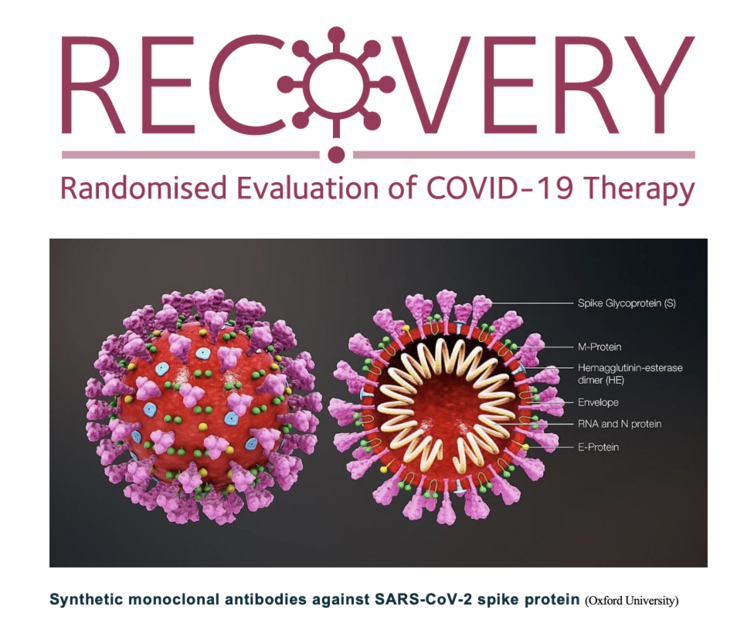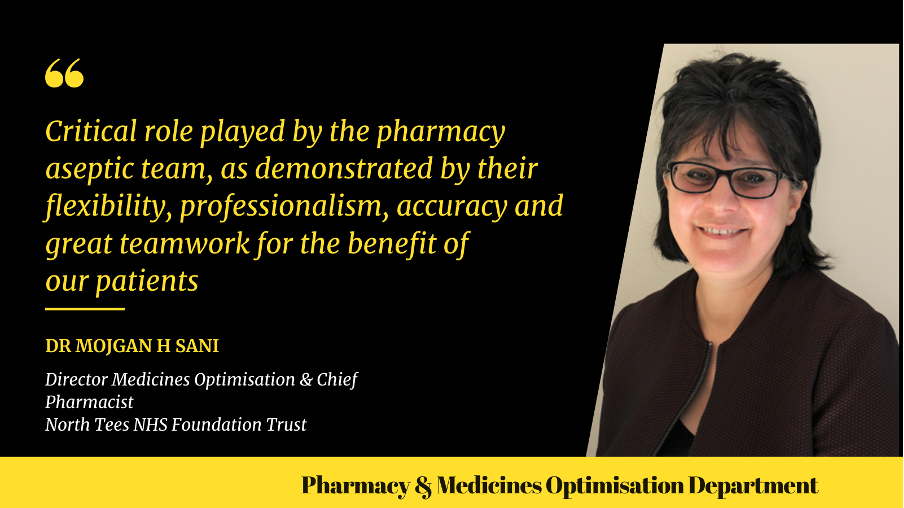
REGN-COV2 is a combination of two monoclonal antibodies and was designed specifically to block infectivity of SARS-CoV-2, the virus that causes COVID-19. The two potent, virus-neutralizing antibodies that form REGN-COV2 bind non-competitively to the critical receptors of the virus's spike protein. This is thought diminish the ability of mutant viruses to escape treatment and cause damage to lung cells.

The monoclonal antibody is the new arm of the RECOVERY Clinical trials (University of Oxford), currently testing suggested treatments:
- Azithromycin (a commonly used antibiotic)
- Tocilizumab (an anti-inflammatory treatment given by injection)
- Convalescent plasma (collected from donors who have recovered from COVID-19 and contains antibodies against the SARS-CoV-2 virus)
- REGN-COV2 (a combination of monoclonal antibodies directed against coronavirus).
The drug works on the principle that one of these protein antibodies is believed to be an exact match for ACE2 receptors in the lungs, activation of which by the coronavirus spike protein, allows penetration into respiratory cells and subsequent inflammatory damage. The antibody attaches itself to the spike protein of the virus rather than allowing the spike protein to attach to the lung ACE2 receptor. This is therefore thought to reduce severity of the illness as the virus is unable to attach and inject itself into the lung cell and replicate.
Additionally, the antibody is designed to provoke an immune response to destroy other virus cells. The second protein antibody is believed to be a very close match if the virus mutates to change the shape of its spike protein and prevent the antibody attaching.
Pharmacy aseptic and clinical trials team are responsible for ensuring regulatory compliance with the use of the unlicensed drug, its receipt, appropriate storage, preparation and documentation of the investigational medicinal product (IMP). When the agent is prescribed and checked by the pharmacy team, the dose is prepared within the aseptic unit clean rooms.

Mr Bill Wetherill, Associate Chief Pharmacist and Accountable Pharmacist for the Aseptic Unit and Clinical Trials, commented that “this is an experimental drug, and although the likely risks of handling the drug are known, until we have definite proof of its safety in terms of operator handling, we are preparing the dose within our safety cabinets in the pharmacy clean rooms. This allows the product to be protected from contamination and be prepared in an aseptic manner, but also ensures protection of the operator from the product in case there are risks we are not yet aware of. It also protects nursing staff and patients on the ward from these risks.”
REGN-COV2 is manufactured by the biotechnology company Regeneron. It is provided in vials which need to be stored in temperature-monitored refrigerator between 2-8 °C. Once patients are allocated REGN-COV2 through participation and randomisation into the RECOVERY Trial, aseptic preparation of the drug in the Unit is completed. The drug is prepared as an infusion, made up in 250ml bag of 0.9% saline and infused over 1 hour.
Each dose is prepared specifically for each individual patient, and labelled for the patient with all necessary requirements for Good Manufacturing and Good Clinical Practice; the ward are informed when it is ready, and the dose is infused on the ward over an hour. Monitoring of the patient and follow up is completed according to the trials protocol.
The Principal Investigator, Dr Ben Prudon, said that “the pharmacy team at University Hospitals of North Tees have worked incredibly hard to ensure all processes and safeguards were in place in a very short time frame to allow patients at North Tees to be given potential access to this medicine, the first unit in the United Kingdom”.
Dr Mojgan H Sani, Director Medicines Optimisation & Chief Pharmacist, commented on the “critical role played by the pharmacy aseptic team, as demonstrated by their flexibility, professionalism, accuracy and great teamwork for the benefit of our patients”.

